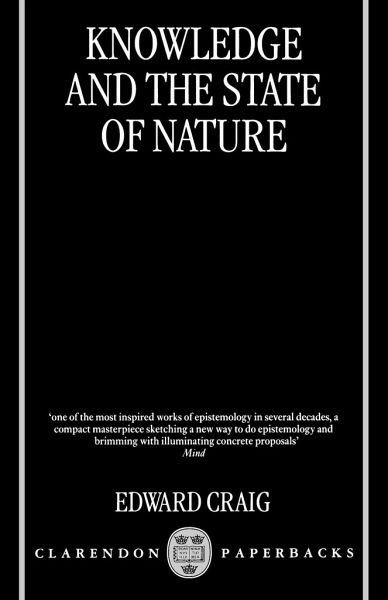
Knowledge and the State of Nature
An Essay in Conceptual Synthesis

PAYBACK Punkte
34 °P sammeln!
In this illuminating study Craig argues that the standard practice of analyzing the concept of knowledge has radical defects--arbitrary restriction of the subject matter and risky theoretical presuppositions. He proposes a new approach similar to the "state-of-nature" method found in political theory, building the concept up from a hypothesis about its social function and the needs it fulfills. Shedding light on much that philosophers have written about knowledge, its analysis and the obstacles to its analysis, and the debate over skepticism, this compelling work will be of interest to student...
In this illuminating study Craig argues that the standard practice of analyzing the concept of knowledge has radical defects--arbitrary restriction of the subject matter and risky theoretical presuppositions. He proposes a new approach similar to the "state-of-nature" method found in political theory, building the concept up from a hypothesis about its social function and the needs it fulfills. Shedding light on much that philosophers have written about knowledge, its analysis and the obstacles to its analysis, and the debate over skepticism, this compelling work will be of interest to students and scholars of epistemology and the philosophy of language.




